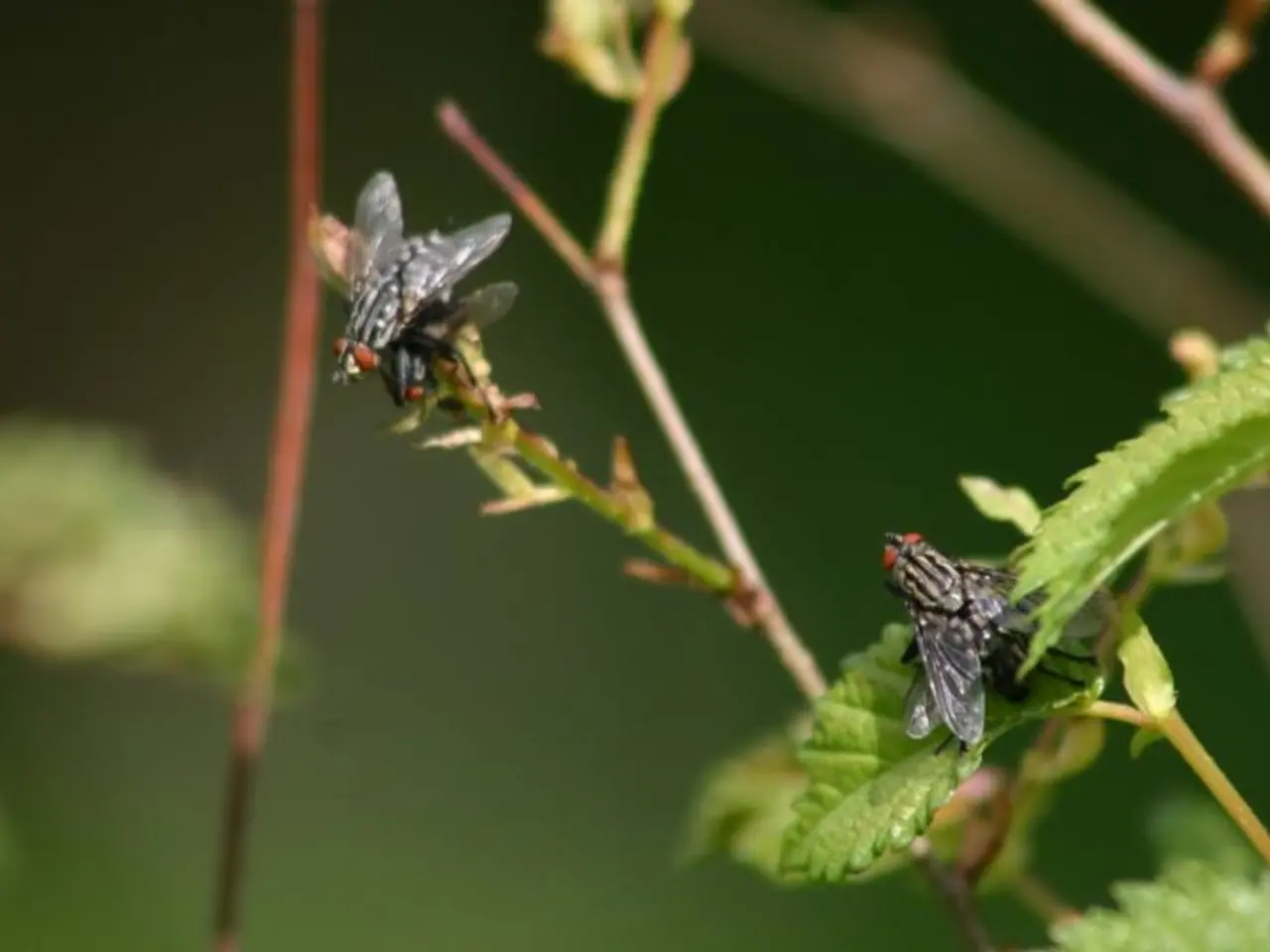Allies are utilizing drones and biochips in the fight against Fusarium wilt disease.
In a groundbreaking mission, Taiwan is assisting Guatemala and its diplomatic ally Belize in combating Fusarium wilt, a destructive banana disease. This technological intervention involves deploying drones equipped with AI chips and rapid screening kits to enhance prevention and early detection of the disease.
The drones, outfitted with AI chips, are capable of monitoring large banana plantations in real-time, identifying early signs of Fusarium wilt from the air. AI processes the data rapidly to detect infected plants or affected areas, enabling faster response times and better management of disease spread. The rapid screening kits provide on-site testing capabilities for Fusarium oxysporum f. sp., allowing field teams to accurately and swiftly confirm infections without the need for distant lab analysis[2][3].
A seminar held in Guatemala City on Tuesday shared Taiwan's successes in plant disease and pest prevention with local governments and agricultural research facilities. Government officials showed great interest in a rapid screening kit for Fusarium wilt developed by National Taiwan University professor Hung Ting-hsuan. National Chung Hsing University's Graduate Institute of Biomedical Engineering professor Chang Cheng-chung discussed Taiwan's rapid detection methods for pests and pesticide residue[4][5].
Taiwan's experience during the COVID-19 pandemic has led to the development of biochips that can detect pests and pesticide residue within 10 minutes. These biochips, combined with drones carrying Nvidia artificial intelligence (AI) chips, offer a powerful, efficient system for tracking, diagnosing, and responding to Fusarium wilt outbreaks, thereby improving crop protection and supporting local banana economies[2][3].
Fusarium oxysporum was first detected in the region after an outbreak in Colombia in 2019. If the disease were to spread further north, it would result in severe losses for all banana-producing nations in Central America. Both Guatemala and Belize annually export US$1 billion of bananas[6][7].
The International Cooperation and Development Fund is conducting a technical mission in Guatemala to combat Fusarium wilt, also known as Panama disease. The mission has invited top experts in plant disease and pests, as well as biomedical engineers, to visit Guatemala, Belize, and Panama[1].
Previously, pest and pesticide residue detection required sending samples to a laboratory, a laborious and expensive process. However, the new system allows for real-time data upload to cloud servers or users' mobile phones, streamlining the process and making it more accessible[2][3].
Latin America and the Caribbean are the leading exporters of bananas across the 35 nations that grow the fruit globally. The effective management of Fusarium wilt in these countries is crucial for maintaining the global banana supply chain[8].
The drones' image recognition technology and AI analysis are used to detect abnormalities in crop planting areas, providing a significant advantage in the fight against Fusarium wilt[4]. This mission marks a significant step forward in global agricultural technology and collaboration, as Taiwan and its allies work together to protect and preserve banana crops.
- To supplement their fight against Fusarium wilt, Guatemala and Belize could incorporate technology such as smartphones and gadgets, as Taiwan's new system allows for real-time data upload from the field.
- In addition to aiding banana farming, Taiwan's technological intervention could potentially extend to health-and-wellness and fitness-and-exercise, considering the advanced AI chips in their drones are capable of processing complex data like early signs of diseases.
- With the integration of technology like AI chips and rapid screening kits for nutrition-related issues, Taiwan's approach could serve as a model for other industries, ensuring early detection and response across various sectors, not just agriculture.




